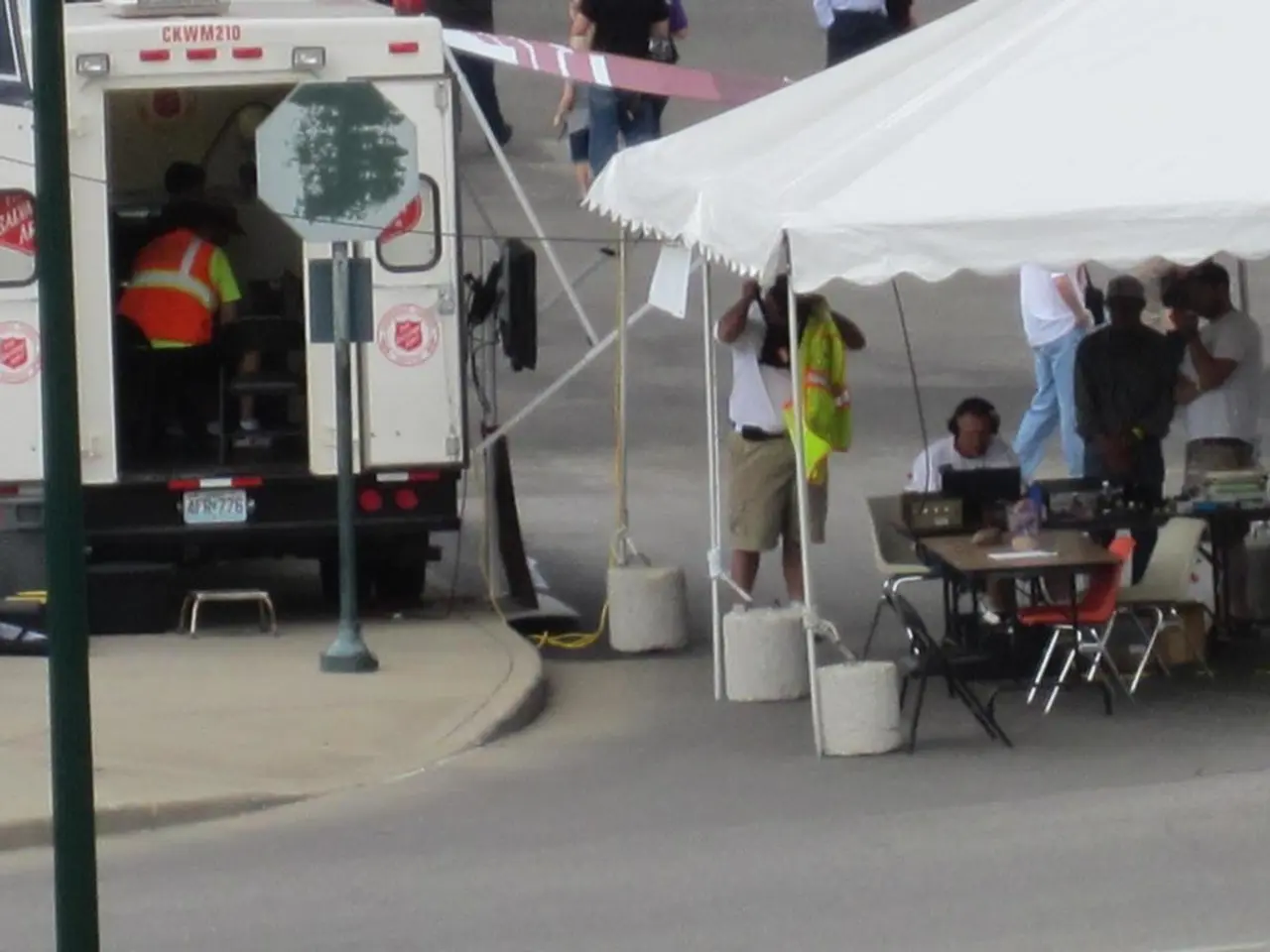International delegates, including EU representatives and 26 foreign ministers, advocate for humanitarian aid organizations' access to Gaza
In a joint statement, representatives from 26 Western countries and the EU Commission have called for the utilization of all border crossings and routes to enable a flood of humanitarian aid into the Gaza Strip. The urgent appeal comes as the specter of famine looms over the region, with widespread starvation and civilian suffering caused by Israel’s blockade and military operations.
The statement, signed by EU Foreign Affairs Representative Kaja Kallas, along with the Foreign Ministers of most EU countries, Australia, Canada, Iceland, Japan, Norway, Switzerland, and the UK, aims to alleviate a dire situation affecting thousands of children and other vulnerable populations in Gaza. The representatives have demanded that the Israeli government grant permanent access to the Palestinian territory for the United Nations, non-governmental organizations, and humanitarian actors.
However, Israeli Prime Minister Benjamin Netanyahu maintains a defiant stance regarding the Gaza conflict. Israel has repeatedly reneged on promises to allow more aid into Gaza, prioritizing security concerns and demanding the disarmament of Hamas and a change in governance of Gaza before fully opening aid routes. Netanyahu insists Hamas must cede control and weapons to the Palestinian Authority as part of a negotiated solution, and Israel has rejected participation in recent UN-backed diplomatic meetings aimed at addressing the crisis.
The statement by Netanyahu raises questions about the distribution and effectiveness of the aid provided by Israel to the Gaza Strip. Despite Netanyahu's assertion that there is no famine in the Gaza Strip, it is reported that hostages under Hamas control are going hungry. The joint statement calls for the utilization of all border crossings and routes to ensure aid delivery, but Netanyahu's statement indicates that Israel may not be allowing access to all needed areas.
As the situation in the Gaza Strip remains complex and contentious, civilians and aid workers at distribution points must be protected. Urgent action is needed to halt the unfolding famine, as stated in the joint statement. The Israeli Prime Minister's stance on aid delivery may create a point of contention among these nations, as pressure continues to mount on Israel to allow unhindered access for humanitarian aid.
Items required for aid include food, shelter, fuel, clean water, and medicine. The situation in the Gaza Strip remains a pressing concern for the international community, and efforts to alleviate the humanitarian crisis will continue to be a focus of diplomatic discussions in the coming weeks. Notably, Germany is not included in the joint statement.
- The joint statement, signed by international representatives, demands that Israel grants permanent access for the United Nations, NGOs, and humanitarian actors to ensure aid delivery in Gaza, given the reported food shortages and restriction of aid under Hamas control.
- As diplomatic discussions unfold, the international community will closely observe Israel's stance on aid delivery and access to all needed areas, particularly in light of the looming famine and the contention surrounding the distribution and effectiveness of aid provided by Israel.







